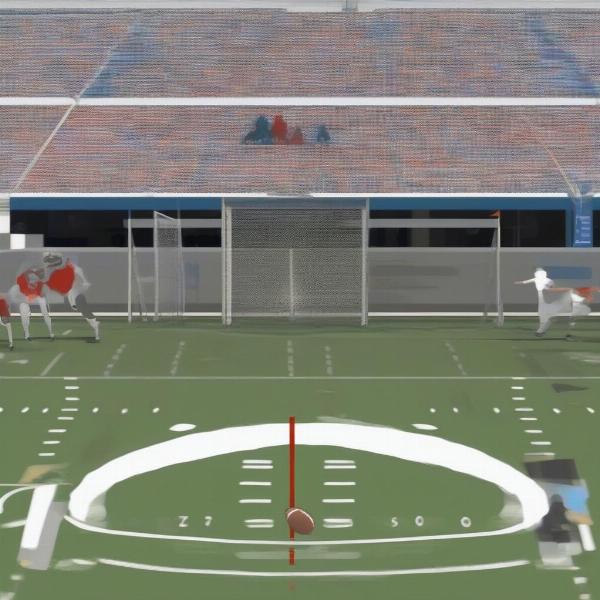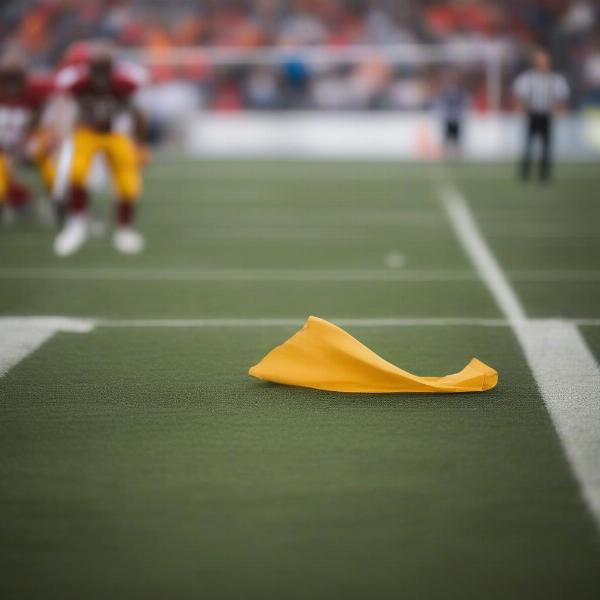The question of the Average Football Game Length is a common one among fans and those new to the sport. At Supreme Duelist Blog, we understand that time commitment is a crucial factor when deciding whether to tune in to a game, or even invest in a whole season of football. This article aims to delve deep into the elements that contribute to the overall duration of a typical match, providing a detailed view into the timing of America’s most popular sport. We will explore the various factors impacting game length and offer insights into why football games can sometimes seem to drag on.
Understanding the duration of a football game can help you plan your viewing schedule and make the most of your game day experience. From the official game clock to the various stoppages and breaks, many elements play a part in defining how long you’ll be watching the gridiron action. Let’s break down these components and answer the question: just how long is a football game?
Breaking Down the Average Football Game Length
The official regulation time for a standard American football game is 60 minutes, divided into four 15-minute quarters. However, the actual elapsed time from kickoff to the final whistle is significantly longer. This is because the game clock stops frequently due to various occurrences, such as incomplete passes, out-of-bounds plays, timeouts, penalties, and the change of possession between offensive and defensive teams. Therefore, while the clock itself may only run for 60 minutes, the real duration of the game is often three hours or more. In fact, some games can stretch closer to four hours, particularly those with many scoring plays or close finishes, or even overtime situations. For a more detailed look, you can check out our post on how long is a football game.
What Factors Extend Game Time?
Several factors contribute to the variance in the average football game length. These aren’t just random occurrences, but a series of events built into the rules and flow of the game:
- Play Stoppages: As mentioned, the clock stops after incomplete passes, when players go out of bounds, after a score, and due to penalties. These stoppages add considerable time to the game’s overall duration.
- Commercial Breaks: Television broadcasts feature frequent commercial breaks which can add significantly to game time. These breaks vary in length, but collectively, they significantly extend the total time spent watching a game.
- Timeouts: Each team has timeouts they can use strategically. These also stop the clock and add extra time to the overall duration. Strategic usage of timeouts, particularly towards the end of a close game, can greatly increase its length.
- Instant Replay Reviews: When there’s a disputed play, officials will review it using instant replay, sometimes adding minutes to a game. This is vital for accurate officiating, but it does impact the overall length of the game.
- Injuries: In the event of injuries, time stops on the clock for the player to receive medical attention. This added time is a necessary aspect of the game’s safety procedures but also contributes to the overall game length.
 Football Game Clock Stoppage
Football Game Clock Stoppage
The Impact of Different Football Levels on Game Length
It’s worth noting that game length can also vary depending on the level of competition. High school games tend to be shorter than college games and even shorter than NFL professional games. This is primarily because the levels of stoppages and reviews are less frequent at lower levels. Below are average time differences:
- High School Games: These games usually take around 2.5 to 3 hours due to shorter quarter lengths (typically 12 minutes) and fewer commercials.
- College Games: College football games, on average, run a bit longer, often exceeding 3 hours and frequently stretching toward 3.5 hours because of the higher frequency of scoring, reviews and commercial interruptions.
- NFL Games: NFL games are generally the longest, averaging over 3 hours and often reaching the 3.5 to 4-hour mark, due to extensive commercial breaks, longer halftime, and more frequent play stoppages and reviews.
“The ebb and flow of a football game is fascinating, but it’s the constant start-stop nature that makes it so long. The clock only represents a fraction of the actual time spent,” notes Dr. Emily Carter, a sports data analyst at the University of California.
Specific Game Length Scenarios
Beyond the general averages, certain specific scenarios can lead to a longer or shorter game. Factors such as overtime, high-scoring games, or the number of penalties can all have an impact.
Overtime
If a game is tied at the end of regulation time, an overtime period takes place. Overtime can add anywhere from a few minutes to a quarter hour or more, depending on the rules of the league and whether the game ends on the first possession. In some overtime formats, a game can end after only one possession if a team scores a touchdown. However, some leagues still implement a full overtime period, adding substantial time to the total duration of the game.
High-Scoring Games
Higher-scoring games often result in longer durations because scoring plays are typically followed by commercial breaks and kickoffs, which both consume time. A game with several touchdowns and extra point kicks, field goals, or two-point conversions will be notably longer than a game with a minimal amount of scoring.
Penalties
Games with numerous penalties will almost always take longer. Time stops while officials call and resolve these penalty situations, with more stoppages resulting in more time spent watching the game. High penalty games often see several challenges by coaching staff which, along with replay review, also add time to the match. If you feel football games are too long, then you might be interested in our article on football games too long.
 Football Game Penalty Flag
Football Game Penalty Flag
Low Scoring Games
Conversely, lower-scoring games tend to be shorter. With fewer scores, there are fewer kickoffs and fewer breaks, thus leading to a slightly shorter game. If the game doesn’t have a lot of penalties, injuries, or challenges, then the total duration will lean towards a more streamlined experience.
Weather Conditions
On occasion, severe weather may delay a football game. Whether this takes the form of a temporary delay or complete postponement, severe weather will impact how much time an individual ends up spending watching a game.
“The length of a football game isn’t a fixed number. You have to factor in all the variable elements to really understand why a game takes as long as it does,” says Coach Michael Davis, a former NFL coach.
Why Does Average Football Game Length Matter?
Understanding the average football game length is important for several reasons:
- Scheduling: It allows fans to schedule their time accordingly, as well as plan viewing parties or other social events around game time.
- TV Ratings: The longer the game, the more advertising revenue broadcasters can accumulate, which impacts the business side of the game.
- Viewer Experience: Knowing what to expect length-wise can improve the overall viewing experience. If you expect to be watching for close to four hours, the more prepared you will be.
- Strategic Considerations: For coaches, understanding game length helps in game-planning, time management, and overall strategy. It becomes important to recognize when they can or should implement more time-consuming tactics.
- Fan Engagement: There’s always an ongoing debate about if average length of a football game is appropriate for its audience.
Tips for Enjoying Longer Games
Since football games can be long, here are a few things to keep in mind to maximize your enjoyment:
- Plan Ahead: Make sure you have food, drinks, and a comfortable place to sit for a potentially long duration.
- Engage: Don’t just passively watch the game. Discuss plays with others, comment on social media, or analyze team strategy.
- Take Breaks: It’s okay to step away for a few minutes during commercial breaks or timeouts. This will help you avoid burnout.
- Stay Hydrated: Remember to drink water throughout the game, especially if you’re watching outside in warm weather.
- Be Patient: Acknowledge that there will be stoppages and that the game clock isn’t the only measure of time spent watching a match.
By understanding the average football game length and what contributes to it, you can better prepare for and appreciate the exciting experience that is live football. The next time someone asks about ole miss football game score and also how long the game will be, you’ll have all the information needed to provide an accurate prediction.
In Conclusion
While the official playing time of a football game is 60 minutes, the average football game length can be more than double due to stoppages, commercials, and other factors. Understanding these elements allows fans and enthusiasts to better manage their time and fully enjoy the game. Stay informed and ahead of the game with Supreme Duelist Blog for all your gaming and sports analysis needs. We hope you have a better idea of what to expect now, and we’re ready to continue bringing you the best in in-depth gaming and sports content. For more insights and analysis, keep an eye on supremeduelist.blog.
Leave a Reply